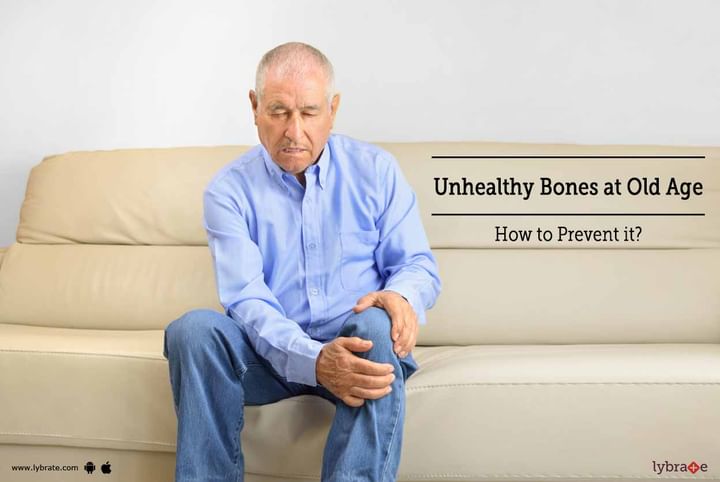Unhealthy Bones at Old Age - How to Prevent it?
Bones play a significant role in our body. They make our structure and help in organ protection, anchoring the muscles and storing calcium. From childhood to adulthood, bones are continuously changing. While new bones are generated, the old bones are torn down. So, it is important to keep our bones healthy with the advancement of old age. There are many ways by which we can avoid unhealthy bones in old age. Some of these ways have been discussed below:
Adequate amount of calcium intake in our body greatly influences healthy bone with good bone density and mitigate the risk of osteoporosis and bone fractures in old age. Older adults need 1,200 mg of calcium a day by having milk, yogurt or cheese. We should also include non-dairy products like tofu, broccoli, almonds, and green leafy vegetables. These items contain Vitamin D, which help the body in absorbing and process calcium. Good sources of calcium are dairy products and fish such as sardines and salmon.
According to the Institute of Medicine, 1,000 mg of calcium a day is needed for most adults and 1,200 mg/day for women after menopause and men after 70. Adults that are 70 years and older require 800 IU of vitamin D a day to in order to prevent falls and fractures.
Physical Activity: Physical activity reduces the risk of osteoporosis and keeps your bone mobility healthy and strong. According to research, avoiding use of tobacco and alcohol contributes healthy bones. Consumption of these poses threat to the health of the bones. Alcohol increases the risk of osteoporosis as it has the ability to interfere with the body’s absorption of calcium.
Eating disorders and other conditions: People with anorexia or bulimia are at risk of bone loss. In addition, stomach surgery (gastrectomy), weight-loss surgery and conditions such as Crohn's disease, celiac disease and Cushing's disease can affect your body's ability to absorb calcium. So, one should have a healthy diet and maintain a disciplined life.
Certain medications: Long-term use of corticosteroid medications, such as prednisone, cortisone, prednisolone and dexamethasone, are damaging to bone. Other drugs that might increase the risk of osteoporosis include aromatase inhibitors to treat breast cancer, selective serotonin reuptake inhibitors, methotrexate, some anti-seizure medications, such as phenytoin (Dilantin) and phenobarbital, and proton pump inhibitors. So, while taking medicines one should consult doctor so as to avoid those medicines for long term which affect bone’s health. While taking these medications one should eat adequate amount of calcium as medicine and food in order to minimize the side effects.
Avoid taking caffeine as it makes our body to excrete calcium more quickly. So drink less regular coffee, tea and soft drinks and avoid high caffeine energy drinks. Avoid using salty foods that causes loss of calcium and weakens the bone. Foods that are processed and canned have high salt, so avoid eating these foods.



+1.svg)
